RYOBI 2000 PSI Pressure Washer Review
- April 19, 2024
- 0 comment
I recently got my hands on the RYOBI 2000 psi 1.2 GPM Electric Pressure Washer, an incredibly efficient machine that promises to transform your cleaning tasks around the house. Here’s an in-depth look at how it holds up in real-world use, from washing cars to freshening up garden sheds.
Specifications of RYOBI 2000 PSI Pressure Washer
- Pressure Rating: 2000 PSI
- Flow Rate: 1.2 GPM
- Motor: 13 Amp electric
- Hose Length: 25 feet
- Nozzle Types: Turbo, 15-degree, soap nozzle
- Detergent Tank: Yes, onboard
- Portability Features: Wheels and telescoping handle
- Frame Material: Metal roll cage
- Storage: Integrated for hose, nozzles, and power cord
- Connection Type: 1/4 inch Universal Quick Connect
- Power Type: Corded electric
- Weight: 29 pounds
- Dimensions: 16.38 x 17.24 x 14.61 inches (depth x height x width)
Key Features and First Impressions
The RYOBI 2000 PSI Electric Pressure Washer impresses right out of the box with its user-centric design and robust capabilities. It features a portable frame equipped with wheels and a telescoping handle, which simplifies transportation across various cleaning environments—from driveways to decks and even boats.
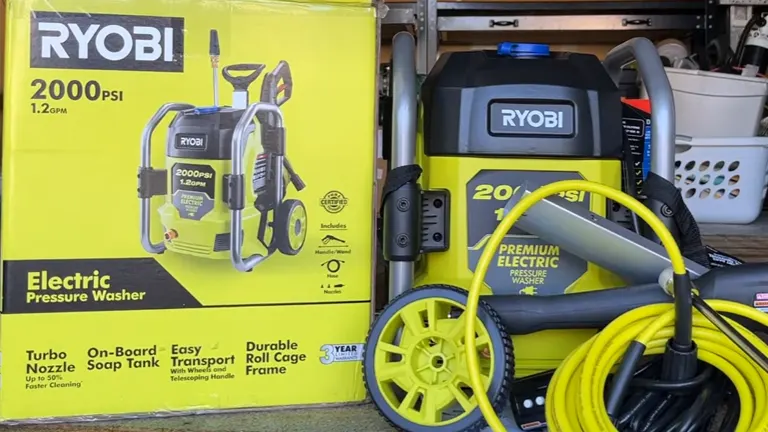
This model shines with its practical quick-connect system, which not only speeds up the setup process but enhances functionality through a turbo nozzle that boosts cleaning power by up to 50%. This is ideal for tackling stubborn stains and grime. Additionally, it includes a soap nozzle tailored for cleaning tough areas, adding versatility to your cleaning arsenal.
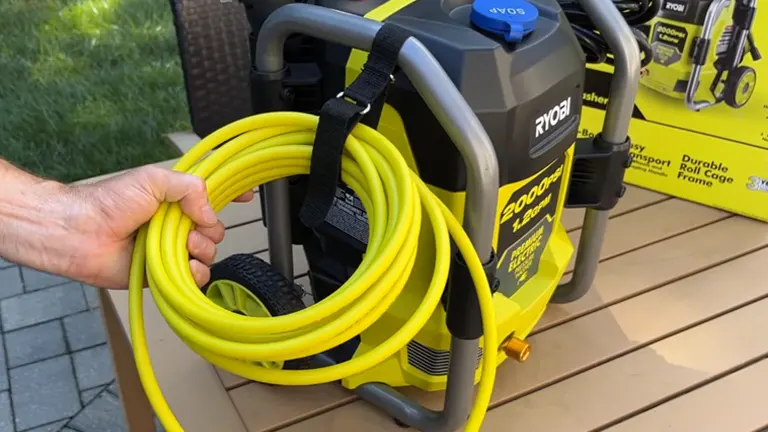
Another standout feature is the powerful combination of a 1.2 GPM flow rate and a 13 Amp electric motor, providing ample power to handle a broad range of cleaning tasks effectively. This pressure washer is designed to deliver top-notch performance without compromise, making it a reliable tool for any homeowner looking to maintain a clean and inviting outdoor space.
Performance: Beyond Expectations
Testing the RYOBI 2000 psi pressure washer was an enlightening experience. It effortlessly restored a weather-worn shed to its original charm and left my car looking as though it had just rolled off the showroom floor. The convenience of the 25 ft. non-marring hose offers considerable reach, facilitating easy cleaning over larger areas, while the integrated detergent tank simplifies the process of soap application, making tough cleaning tasks more manageable.
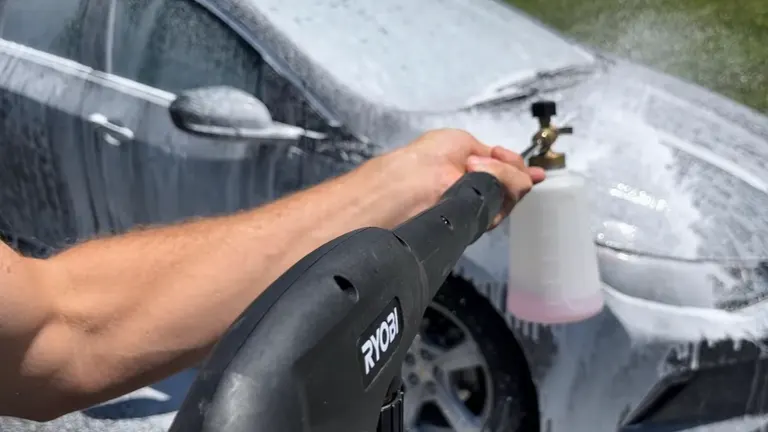
Despite its impressive capabilities, a comparison with the less expensive RYOBI 1800 psi model revealed that the performance differences between the two were minimal. Both models performed exceptionally, leading to questions about whether the additional cost of the 2000 psi model is worthwhile for casual cleaning needs. This observation may prompt potential buyers to evaluate their specific requirements before opting for the higher-priced model.
Design and Build: Made for Convenience
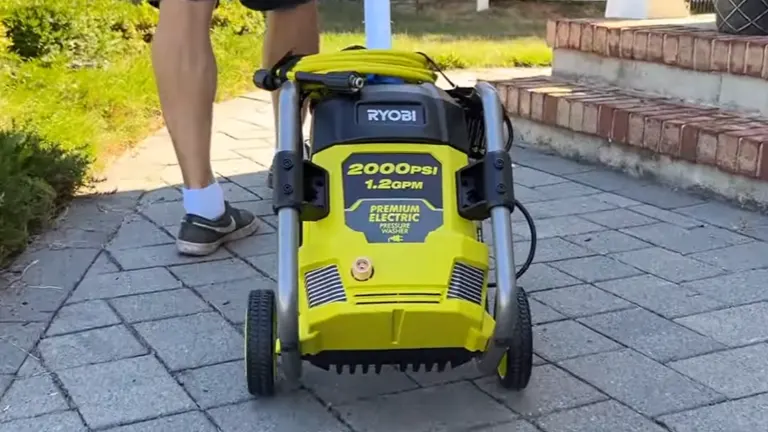
The design of the RYOBI 2000 psi pressure washer emphasizes practicality and user convenience. The foldable handle not only aids in compact storage but also complements the thoughtfully integrated storage solutions for the cord and hose, keeping everything neat and tidy. Built with a durable metal frame and equipped with sturdy wheels, the washer is both durable and easy to move around, making it ideal for various cleaning tasks around the home.
Usability and Features
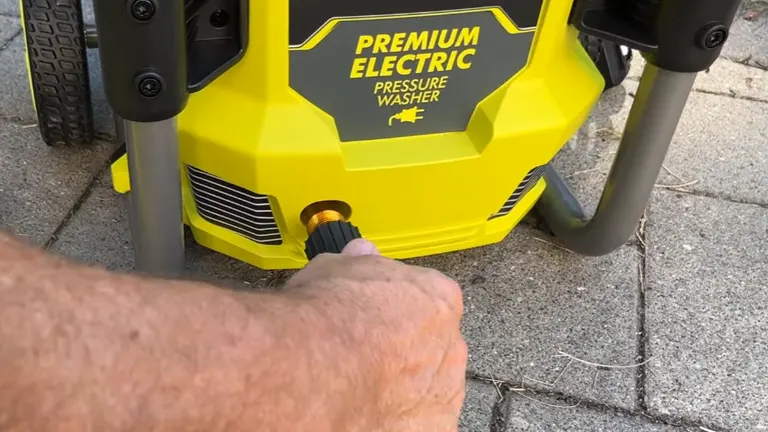
The pressure washer’s ease of use is significantly boosted by its quick-connect system, allowing seamless switching between nozzles to suit different cleaning needs. The turbo nozzle stands out, providing up to 50% more cleaning power, which noticeably speeds up the process by efficiently tackling stubborn dirt and grime. The convenience of having all necessary accessories, such as various nozzles and the hose, stored directly on the unit simplifies the setup and enhances the overall user experience, ensuring that everything needed for effective cleaning is at your fingertips.
Things I Like about the RYOBI 2000 PSI Pressure Washer
- The 2000 PSI and 1.2 GPM output really make a difference, handling everything from grimy driveways to muddy garden tools with ease.
- This feature is a standout; it significantly boosts cleaning power, making tough stains vanish faster than I expected.
- The design includes wheels and a telescoping handle which makes moving it around a breeze, even when navigating through grass or over rough patio stones.
- I appreciate having spots to neatly store the hose, power cord, and nozzles right on the unit. It keeps everything organized and ready to go.
- This is a huge plus for me as it doesn’t take up much space in the garage or shed when not in use.
Things I Don’t Like about the RYOBI 2000 PSI Pressure Washer
- While the pressure washer itself feels robust, the hose feels a bit stiff and cheaper by comparison. I’m a bit worried it might not withstand the test of time and could kink or crack.
- It’s a bit louder than I expected for an electric model. While not overwhelming, it’s something to note if you prefer a quieter operation.
- Having used both this model and the slightly less powerful 1800 PSI version from RYOBI, I’m not completely convinced the extra cost for this model is justified based on power alone.
- While having a built-in soap dispenser is convenient, its performance is just okay. It doesn’t mix as well as I’d hoped, and adjusting it to get the right soap concentration can be fiddly.
Maintenance of RYOBI 2000 PSI Pressure Washer
Maintaining the RYOBI 2000 PSI Pressure Washer is key to ensuring it operates efficiently and lasts a long time. Here are some straightforward steps to keep it in top condition:
- Regular Cleaning: After each use, rinse the detergent tank, if used, to prevent soap build-up. Clean the nozzles with clean water to remove any debris or dirt that could cause clogging.
- Inspect and Store Hoses Properly: Regularly check the hose for any cuts, leaks, or wear. Store it loosely coiled and away from sharp edges to avoid kinking and damage.
- Winterize Before Storage: If you live in a region where temperatures drop below freezing, it’s crucial to drain all water from the machine and hoses to prevent freezing and cracking. Storing the unit in a frost-free environment is recommended.
- Check Electrical Cords and Connections: Inspect the power cord and plug for any signs of wear or damage. Ensure all connections are secure and dry before starting the pressure washer.
- Regularly Check for Leaks: Before and after use, check for any leaks from the machine. If leaks are found, especially at connection points, replace the faulty parts or tighten the connections.
- Care for the Pump: Occasionally run a pump protector through the system to lubricate the pump and prevent corrosion. This is especially important if the pressure washer is not used frequently.
- Store in a Clean, Dry Place: After cleaning and maintenance, store your pressure washer in a clean and dry area to prevent rust and premature wear.
Comparative Analysis with Its Competitor: RYOBI 2000 PSI vs. Greenworks 2000
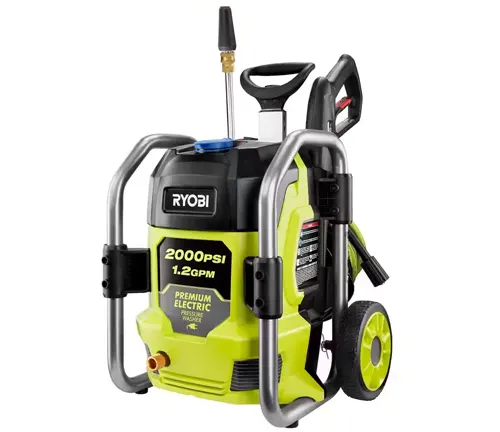 |  | |
|---|---|---|
| Price | $200 | $169.99 |
| PSI (Pounds per Square Inch) | 2000 PSI | 2000 PSI |
| GPM (Gallons per Minute) | 1.2 GPM | 1.2 GPM |
| Motor | 13 Amp Electric Motor | 13 Amp Universal Motor |
| Hose Length | 25 feet non-marring hose | 25 feet |
| Power Cord Length | 35 feet | 35 feet |
| Nozzle Types | Turbo Nozzle, 15° Nozzle, Soap Nozzle | 25°, 40°, Turbo Nozzle, Soap Applicator |
| Detergent Tank | On-board | On-board |
| Portability | Wheels and telescoping handle | Wheels and handle |
| Warranty | 3-Year Limited Warranty | 3-Year Limited Warranty |
Summary: The RYOBI and Greenworks 2000 PSI electric pressure washers both offer efficient cleaning with a 2000 PSI output and 1.2 GPM flow, perfect for handling household cleaning tasks. Both models have similar reach due to equivalent hose and power cord lengths and feature durable electric motors.
RYOBI excels with its turbo nozzle that boosts cleaning power by up to 50%, ideal for stubborn stains, and it stores vertically to save space. It also boasts a durable metal frame. Greenworks, on the other hand, provides a quieter operation and multiple nozzle options for various cleaning needs, though its universal motor may lack the longevity of RYOBI’s brushless motor.
Both are easy to maneuver and store, thanks to their thoughtful design including wheels, handles, and on-board storage. Choosing between them depends on your priorities: RYOBI for more intensive cleaning and durability, or Greenworks for quiet operation and flexibility. Each comes with a 3-year warranty, making either a solid choice for residential use.
Final Thoughts
The RYOBI 2000 psi Electric Pressure Washer stands as a testament to its efficient design and powerful cleaning capability. It’s ideal for those who value convenience and time-saving features in a compact package. While it may sit at a higher price point, its performance and design justify the investment for serious home care enthusiasts.
FAQs
- What type of tasks is the Ryobi 2000 PSI pressure washer best suited for?
The Ryobi 2000 PSI is ideal for cleaning driveways, decks, windows, cars, and boats. - Can the Ryobi 2000 PSI pressure washer use hot water for cleaning?
No, it is designed for cold water use only to ensure safety and prevent damage to the internal components. - How long can I continuously use the Ryobi 2000 PSI pressure washer?
It’s recommended to take breaks during extended use periods to prevent overheating and ensure longevity. - What maintenance does the Ryobi 2000 PSI pressure washer require?
Regular maintenance includes checking and cleaning the nozzles, ensuring the hose is free of kinks and leaks, and storing the unit in a dry, frost-free environment. - Is the Ryobi 2000 PSI pressure washer suitable for commercial use?
It is primarily designed for residential use. For commercial tasks, a pressure washer with higher durability and performance might be more appropriate. - Can I adjust the pressure on the Ryobi 2000 PSI pressure washer?
While the pressure is not adjustable, you can change the cleaning intensity by switching between the different nozzle tips provided. - What safety features does the Ryobi 2000 PSI pressure washer have?
Safety features include a ground fault circuit interrupter (GFCI) on the power cord to prevent electrical shock and an automatic safety valve with low pressure by-pass. - How does the soap injection feature work on this pressure washer?
The Ryobi 2000 PSI features an on-board detergent tank that automatically mixes soap with water for effective cleaning. - Can the Ryobi 2000 PSI be used to strip paint?
It can remove peeling paint but is not typically powerful enough for complete paint stripping from robust surfaces like wood and metal. - What is the warranty period for the Ryobi 2000 PSI pressure washer?
It comes with a 3-year limited warranty, covering defects in materials and workmanship.
I hope this review helps you gauge whether the RYOBI 2000 PSI Pressure Washer is right for your cleaning needs! Got more questions or thoughts about it? Feel free to drop a comment below—we’d love to hear about your experiences and any tips you might have! Happy cleaning!
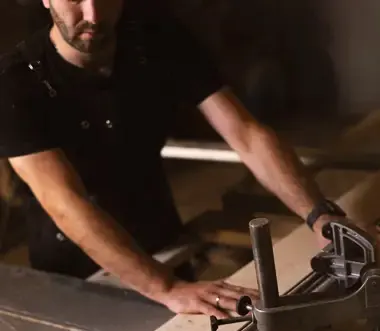
David Murray
Forestry AuthorI'm David Murry, a forestry equipment specialist with a focus on chainsaw operation. With over 13 years of experience, I've honed my skills in operating and maintaining a wide range of machinery, from chainsaws to log splitters. My passion for the outdoors and commitment to sustainable forestry drive my work, which emphasizes safety, efficiency, and staying updated with industry advancements. Additionally, I'm dedicated to sharing my expertise and promoting environmental awareness within the forestry community.

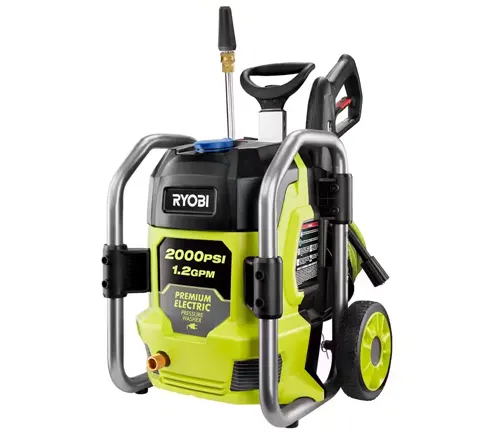
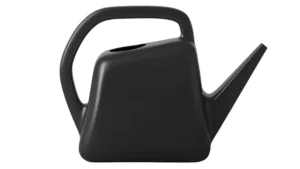
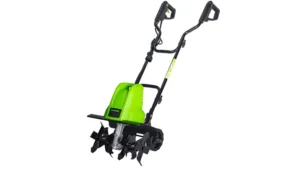
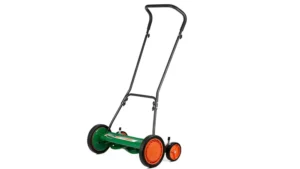
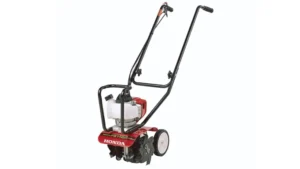

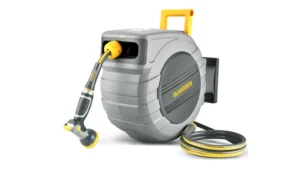
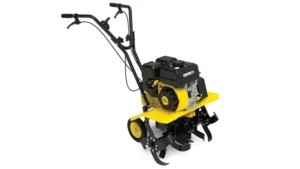
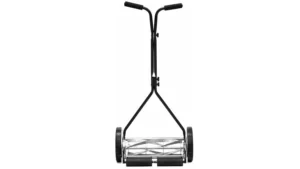

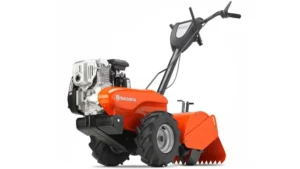
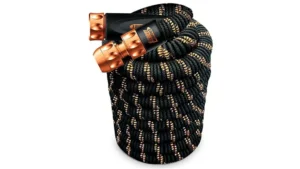
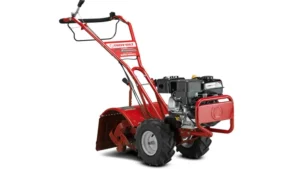
Leave your comment